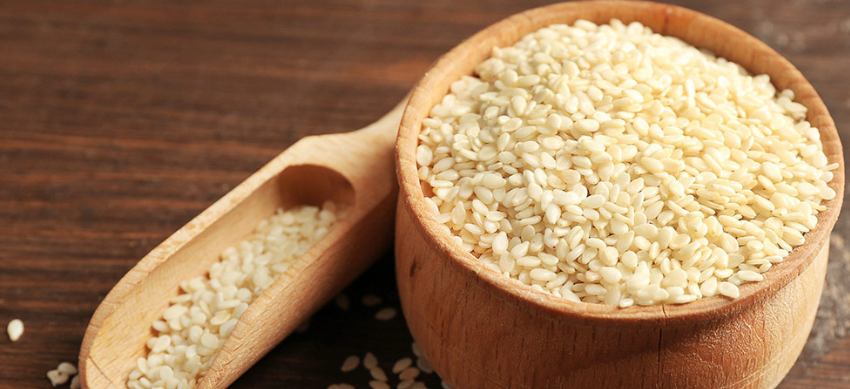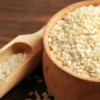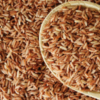Sesame seeds are tiny, oil-rich seeds produced in pods by the Sesamum indicum plant. It is native to Southeast Asia, Africa, and South America. Sesame seeds are high in protein, vitamins, minerals, and antioxidants. They are commonly used to give foods a nutty flavor and a crunchy texture.
They have been used in folk medicine for thousands of years and have many potential health benefits. They may help to prevent heart disease, diabetes, and arthritis.
However, to reap the health benefits, you may need to consume a significant amount — a small handful per day. Below are 15 health benefits of sesame seeds.
 1. Nutritious Source of Plant Protein
1. Nutritious Source of Plant Protein
Protein is essential for your health because it aids in developing everything from muscles to hormones. Sesame seeds, especially hulled ones, are high in protein, which is a necessary building block for your body.
2. Lower Blood Pressure
Hypertension is a significant risk factor for heart disease and stroke. Sesame seeds are high in magnesium, which may reduce blood pressure. Furthermore, antioxidants present in them may help prevent plaque build-up.
3. Support Healthy Bones
Sesame seeds, both unhulled and hulled, are high in several nutrients that promote bone health, with the hull containing most of the calcium.
Unhulled sesame seeds are exceptionally high in calcium and other bone-building nutrients. Soaking, roasting, or sprouting them can improve mineral absorption.
4. Good Source of Fiber
Three tablespoons (30 grams) of unhulled sesame seeds contain 3.5 grams of fiber, which is well known for its digestive health benefits. Furthermore, growing evidence suggests that fiber may help lower your risk of heart disease, certain cancers, obesity, and type 2 diabetes.
5. Lower Cholesterol and Triglycerides
Sesame seeds comprise 15% saturated fat, 41% polyunsaturated fat, and 39% monounsaturated fat. They help to reduce heart disease risk factors like high triglycerides and “bad” LDL cholesterol levels.
6. Good Source of B Vitamins
Sesame seeds are high in B vitamins found in both the hull and the source. Removing the hull may concentrate or deplete some B vitamins. They are high in thiamine, niacin, and vitamin B6, essential for proper cellular function and metabolism.
7. Reduce Inflammation
 Sesame seeds may aid in the reduction of Inflammation.
Sesame seeds may aid in the reduction of Inflammation.
Long-term, low-level Inflammation has related to various chronic diseases, including obesity, cancer, heart disease, and kidney disease.
8. Helps in Blood Cell Formation
Iron, copper, and vitamin B6 are all found in sesame seeds and are required for blood cell formation and function.
9. Helps in Blood Sugar Control
Sesame seeds may help with blood sugar control because they are low in carbs and high in quality protein and healthy fats.
10. Rich in Antioxidants
 Sesame seeds contain antioxidants in plant compounds and vitamin E, which help your body fight oxidative stress.
Sesame seeds contain antioxidants in plant compounds and vitamin E, which help your body fight oxidative stress.
11. Support Your Immune System
Sesame seeds are high in vitamin E, B6, zinc, selenium, copper, and iron which are essential for your immune system.
12. Soothe Arthritic Knee Pain
Osteoarthritis, which commonly affects the knees, is the most common cause of joint pain. Several factors, including Inflammation and oxidative damage to the cartilage that cushions joints, can contribute to arthritis. Sesamin, a sesame seed compound, has anti-inflammatory and antioxidant properties that may protect your cartilage.
13. May Aid Hormone Balance During Menopause
Sesame seeds contain phytoestrogens, plant compounds that mimic the hormone estrogen. As a result, sesame seeds may benefit women when their estrogen levels drop during menopause.
14. Support Thyroid Health
Sesame seeds are high in nutrients that support thyroid health, including selenium, iron, copper, zinc, and vitamin B6.
15. Easy to Add to Your Diet
Many dishes benefit from the nutty flavor and subtle crunch of sesame seeds. Roast sesame seeds at 350°F (180°C) for a few minutes, occasionally stirring until they reach a light, golden brown color to enhance flavor and nutrient availability. You can add sesame seeds to yogurt, Bread and cookies, smoothies, salads, salad dressing, hummus, garnishes, stir-fries, steamed broccoli, hot or cold cereal, granola, granola bars, and crackers.
We can substitute sesame seed butter, or Tahini, for peanut butter or hummus. Ground sesame seeds, also known as sesame flour or sesame seed meal, can be used in baking, smoothies, fish batter, and other recipes.
However, sesame allergies are becoming more common, so use caution when cooking.
How to store Sesame Seeds
To keep sesame seeds and sesame oil from going rotten, keep them in a dry, cool place, such as a kitchen cupboard. People can also store sesame seeds in the refrigerator to keep them fresh and last longer.
Sesame seeds are available everywhere, as they are one of the world’s most popular types of seeds. Place an order for Bulk organic food online and buy groceries online from ZZorganic , such as organic sesame seeds and organic mustard seeds.@ZZOrganic, we aim to improve awareness regarding good food habits, make people healthier, and help them connect with nature.






